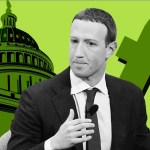
Josh Marshall
Most discussions of Florida’s decision to forbid professors at state universities from serving as expert witnesses in cases challenging its voter suppression laws have focused on it as a question of free speech versus the state. And it is certainly that. In every legal sense it is that. It’s an almost comical abuse of power. But I want to highlight a distinction which may seem semantic but I think is more than that.
The danger is less the state than a certain type of political party, the Trumpite GOP.
Read More The Most Damning Jan 6th Revelation Yet
The Most Damning Jan 6th Revelation Yet
As I have noted in other recent posts, much of the recent ‘news’ about the insurrection has not been terribly new. It’s repackaged versions of things we knew or additional evidence and detail. This story published last night in the Post is one of the biggest revelations I’ve seen to date. John Eastman is the Federalist Society right wing law professor who wrote up the legal gloss for the President’s coup plot. It created the connective tissue joining the coup plot within the government with the paramilitary violence that broke out on Capitol Hill on January 6th.
The Post has emails – presumably emerging out of the committee investigation – of what happened during the insurrection. As the insurrectionists were storming the Capitol and Pence was holed up in a secure location as they hunted for him and members of Congress, Eastman emailed Pence and his top aide saying that the insurrection was Pence’s fault for not going through with the coup plot. With the President’s supporters ransacking the Capitol Eastman demanded Pence shift course and do the right thing.
Read More What’s Worth Knowing About the ‘Metaverse’
What’s Worth Knowing About the ‘Metaverse’
We do political news not tech news. So I don’t want to do too many posts about Facebook and its travails. But as we’ve seen in the first decades of this century the tech behemoths, by their scale, economic heft and integration into our lives are very much part of our politics. So I wanted to share a few thoughts on Facebook’s pivot to the “metaverse” and rebranding as “meta”.
What on earth is the “metaverse”? Basically it’s just virtual reality, VR. Take a bunch of the things you now do in your daily life – talk to friends, play a game, watch a movie, have a work meeting – and you’ll do them in a VR headset in a digital ecosystem controlled by Facebook. Sounds great, right? Honestly, it’s hard for me to imagine anything more dystopian since the defining feature of Facebook is its indifference to “externalities”, the downside impacts of what it is and what it does.
Read More Sizing Up the Morning – Proposed Not Really Deal Edition
Sizing Up the Morning – Proposed Not Really Deal Edition
I can’t tell whether I’m more miffed at Manchin and Sinema for cutting the reconciliation outline in half or forcing this months long delay and death by a thousand cuts which in addition to being incredibly annoying has greatly damaged Democrats’ and the White House’s political standing. And in case you’re putting the politics up against the policy and finding the former wanting – get real, the politics is what makes it possible to sustain the policy over time. In any case, it’s still not clear to me in what sense this is even a deal or a framework since neither side (“Manchin/Sinema” and “EveryoneElse”) appears to have agreed to it. This is more like what the President probably should have done a while ago which is to say: this is the deal, this is my plan, this is what I want. Now everyone get on board and support it.
Two thoughts on this.
Read MoreDemocrats appear to be limping their way toward passing a slimmed down version of the President’s agenda. I don’t think we should be overly distressed that the final number is around $2 trillion as opposed to $3.5 trillion. You never get everything you want. And we can’t run from the reality that Democrats control Congress by the most tenuous of margins – in fact, no margin at all in the Senate. But Democrats should be asking themselves why it is that over the last three to four months the President’s public approval has fallen roughly ten points. In a highly partisan and polarized age that is simply a massive drop.
Why has this happened?
Read More A Revealing Look At Zuckerberg
A Revealing Look At Zuckerberg
I haven’t been reading all of the articles now coming out of the so-called “Facebook Papers”. But this article from the Post captures some important issues, ones that aren’t tied necessarily to the specific revelations getting the most attention but a general picture. There are two big focuses to the piece. The first is that for a company of its scale Facebook still has an extremely top-down management structure. Basically Zuckerberg is deep in the details and makes all the big decisions. The second is that he has repeatedly shot down internal ‘harm reduction’ proposals because they threaten core engagement metrics.
I noted a few weeks back that these tradeoffs get to the heart of Facebook’s problem and the heart of what the site is. The harm is inherent to Facebook’s business model. When you find ways to reduce harm they’re almost always at the expense of engagement metrics the maximization of which are the goal of basically everything Facebook does. The comparison may be a loaded or contentious one. But it is a bit like the Tobacco companies. The product is the problem, not how it’s used or abused. It’s the product. That’s a challenging place for a company to be.
Read MoreWe hear endlessly about the broken ‘supply chains’ that are causing product shortages and rising prices. Here is a pretty good overarching description of what exactly that means: the mix of radically changed consumer behaviors along with various knock-on effects from factory closures, retoolings and more that happened in the early months of the pandemic. I recommend it because it gives a good sense of just how intractable the issue is at least in the short term and how the different factors interact with each other.
Read MoreThese are rough days for Facebook. You don’t need me to tell you that. Here’s another article about how the Facebook algorithm was optimized to drive more provocative and emotion-laden content. Basically, it was refined to put stuff in front of you that makes you angry. When I read these articles I am reminded that most people have not really internalized how the social networks work. Even when people understand in some sense – and often even in detail – how the algorithms work they still tend to see these platforms as modern, digital versions of the town square. There have always been people saying nonsensical things, lying, unknowingly peddling inaccurate information. And our whole civic order is based on a deep skepticism about any authority’s ability to determine what’s true or accurate and what’s not. So really there’s nothing new under the sun, many people say.
Read MoreThere are a host of supply chain, inflation and “labor shortage” issues that for the moment are a political headache for the Biden administration. I put them in this political context because the discussion of them is currently highly politicized. But if we can step back from those immediate concerns and often tendentious debates we can already see that the pandemic has had profound effects on the most basic ways Americans (and no doubt people across the world) approach their lives and particularly how they approach work.
Read More There’s a Lot of Confusion About What Is and Isn’t in That Rolling Stone Article
There’s a Lot of Confusion About What Is and Isn’t in That Rolling Stone Article
TPM Alum Hunter Walker has a big scoop in Rolling Stone about the January 6th insurrection and the congressional investigation into it. But there seems to be some significant confusion about what’s actually in the report and what it means for understanding the event itself and the investigation into it. I want to be clear up front this isn’t a criticism of the piece itself. But understanding this is very important for understanding the questions of accountability and legality stemming from the whole event.
First of all, I saw many reactions to the story yesterday which treated it as a sort of smoking gun about the involvement of a number of far-right members of Congress. But at least to my understanding this part of the report was not new. Not really new at all. There are basically three parts of the story that we can distinguish for these purposes. 1) The legal/executive power attempt to overturn the election, 2) the “Stop the Steal” rally aimed at pressuring Congress and then 3) the breach of the Capitol complex which happened when then-President Trump told the rally attendees to march on the Capitol complex. But we’ve known basically from the beginning that these members of Congress were involved in 1 and 2. This has not just come out in reporting since January 6th. It was fairly open at the time. Indeed, most of these members were either present or actually spoke at the rally.
Read More